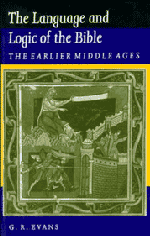Summary
Gregory the Great prefaced his vast commentary on the Book of Job with a letter in which he explained something of his intention in writing it. ‘Whoever speaks about God must take care to search thoroughly for anything which may teach his listeners how to live a better life, and he should be confident that he is arranging his talk along the right lines if, when an opportunity presents itself, he turns aside from the matter in hand to speak about some edifying point’. Gregory sees the exposition of Scripture as a river of discourse. As the river flows along its bed it comes from time to time to open valleys, and it runs into them at once until they are full, and then it pours itself back into its course. This discursiveness of biblical scholarship is the characteristic most likely to strike the modern reader as he comes to Gregory and his mediaeval successors for the first time. The Bible seemed to mediaeval exegetes to be infinitely profuse in its riches, and yet unified in its teaching. Adam the Scot, a Premonstratensian canon of the twelfth century, describes the ‘great and wonderful profundity’ of Scripture, the veil beneath which it hides its depths; its essentially paradoxical nature, showing God and his works in simple things and at the same time elevating those simple things to a high significance; how it is always one and the same and yet teaches that ‘one’ in many ways, according to the multiplicity of human needs.
- Type
- Chapter
- Information
- The Language and Logic of the BibleThe Earlier Middle Ages, pp. 164 - 168Publisher: Cambridge University PressPrint publication year: 1984



